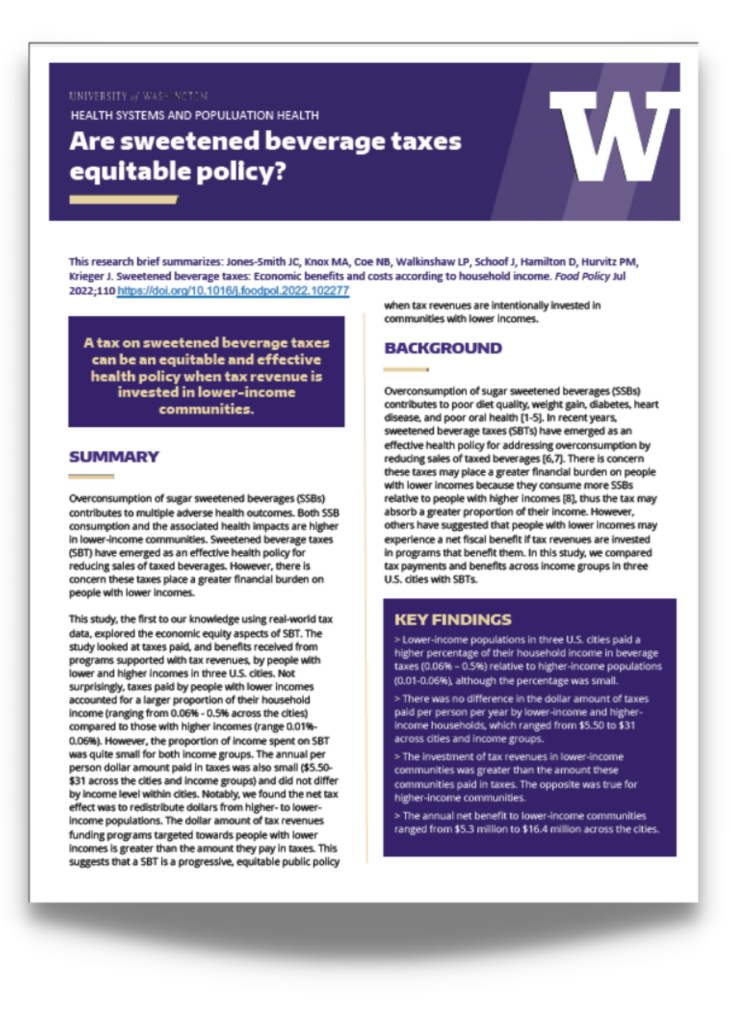Brief: Are sweetened beverage taxes equitable policy?
This study—the first to our knowledge using real-world tax data—explored the economic equity aspects of sweetened beverage taxes (SBT). The study looked at taxes paid, and benefits received from programs supported with tax revenues, by people with lower and higher incomes in three U.S. cities.
Findings
Taxes paid by people with lower incomes accounted for a larger proportion of their household income (ranging from 0.06% – 0.5% across the cities) compared to those with higher incomes (range 0.01%-0.06%). However, the proportion of income spent on SBT was quite small for both income groups. The annual per person dollar amount paid in taxes was also small ($5.50- $31 across the cities and income groups) and did not differ by income level within cities. Notably, we found the net tax effect was to redistribute dollars from higher- to lower-income populations. The dollar amount of tax revenues funding programs targeted towards people with lower incomes is greater than the amount they pay in taxes. This suggests that a SBT is a progressive, equitable public policy when tax revenues are intentionally invested in communities with lower incomes.
Explore More: Learn more about the project goals, team, and related materials.
Materials
Publication Date: August 31, 2022
Author(s): Jones-Smith JC, Knox MA, Coe NB, Walkinshaw LP, Schoof J, Hamilton D, Hurvitz PM, Krieger J.
Resource Type(s): Briefs
Research Area(s): Food & Nutrition Policy
